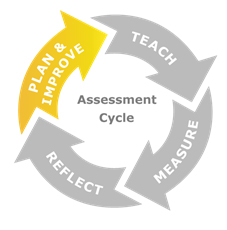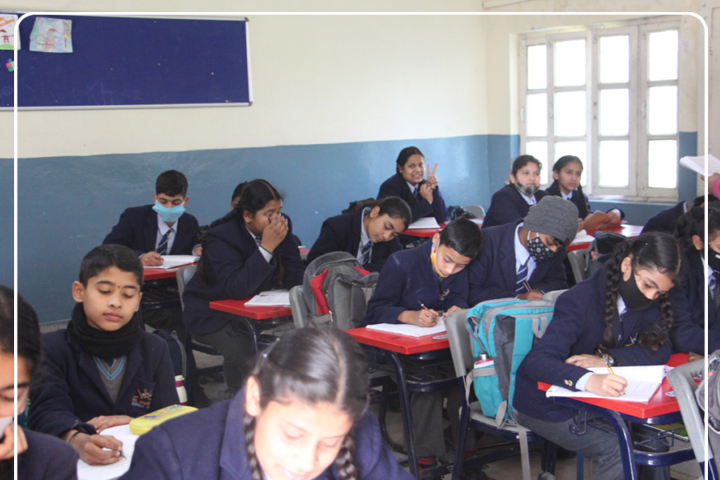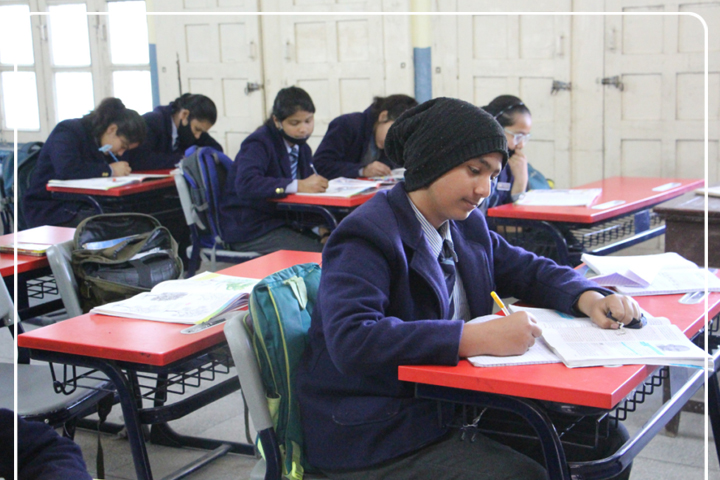
‘Assessment…is the engine which drives student learning.’ – John Cowan
Measurement of learning outcomes is crucial for improving the quality of education. Assessment motivates instruction by emphasising the value of critical thinking, reasoning, and reflection, resulting in an enriching learning environment.
It is the process of collecting and evaluating information about what students know, understands, and how they can apply the acquired knowledge in their everyday life. This helps students, as well as educators, make informed and concrete decisions about the next steps in bridging the identified gaps.
CBSE envisages an all-around development of students with a holistic approach to education. It lays great emphasis on the integration of curricular and co-curricular domains in an equitable manner. The CBSE pattern of assessment ensures that all aspects of student learning are measured in tangible terms in order to foster core competencies in students. It also recommends the assessments be used as diagnostic tools for appropriate remediation.

Abiding by the CBSE norms, the school conducts two types of assessments:
The academic year begins in April and the Final Term Examinations are conducted in March of the following year. A minimum of 75% attendance is compulsory for every student to be eligible to appear in the Annual examinations of the academic session.
New Session for Class X & XII begins in March and for all other classes in the month of April.
Assessments are conducted based on Scholastic and Co-Scholastic areas. Scholastic includes Unit Assessments (20 marks) and Half Yearly & Yearly / Annual Examination (80 marks).
• Unit Assessment comprises Unit Test (weightage10 marks) + Notebook Submission (weightage 5 marks) + Subject Enrichment Activity (weightage 5 marks).
• There will be four Summative Assessments in the entire school year
• Unit Test 1 – to be conducted in May
• Half-Yearly Examination – to be conducted in September
• Unit Test 2 – to be conducted in December
• Annual Exam – to be conducted in February / March.
• The syllabus for Unit Test will be the chapters that are taught in the class one week before the scheduled date of the exam
• Syllabus for Half Yearly will be approximately 50% of the curriculum, i.e. Term-I syllabus.
• The syllabus for Annual Examination will be the entire syllabus of Term II + some important topics of Term-I.

Synopsis of Assessment:
Assessment Description | Total Marks | Weightage | |
|---|---|---|---|
1 | Unit Test (May and December) | 30 Marks | 10 Marks |
2 | Notebook Submission (Once in Term-I & Term-II separately) | 15 Marks | 5 Marks |
3 | Subject Enrichment Activity (Once in Term-I & Term-II separately) | 10 Marks | 5 Marks |
4 | Half Yearly Examination ( September) | 80 Marks | 80 Marks |
5 | Annual Exam (February/March) | 80 Marks | 80 Marks |
Thus,

• Unit Test I for all Classes except Class XI is conducted in the month of May. UT I for Class XI is conducted in the month of August.
• Half Yearly Examinations for all classes are held in the month of September.
• Unit Test II for all classes is held in the month of December.
• Pre Board I for classes X & XII is conducted in the month of December.
• Pre Board II for classes X & XII is conducted in the month of January.
• Annual Examinations for all classes except Classes IX & XI are conducted in the month of March. Annual Examinations for Classes IX & XI are conducted in February or as per the schedule provided by the CBSE
• Boarding Facilities – Maa Anandmayee Memorial School.
• New Session for Class X & XII will begin in March and for all other classes on 1st April.
Disclaimer: Maa Anandmayee Memorial School, Raiwala is not affiliated and/or associated, directly or indirectly with any other school and/or educational institute using the word ‘MAMS’ as a part of its name.
© The Maa Anandmayee Memorial School, 2021. All rights reserved.